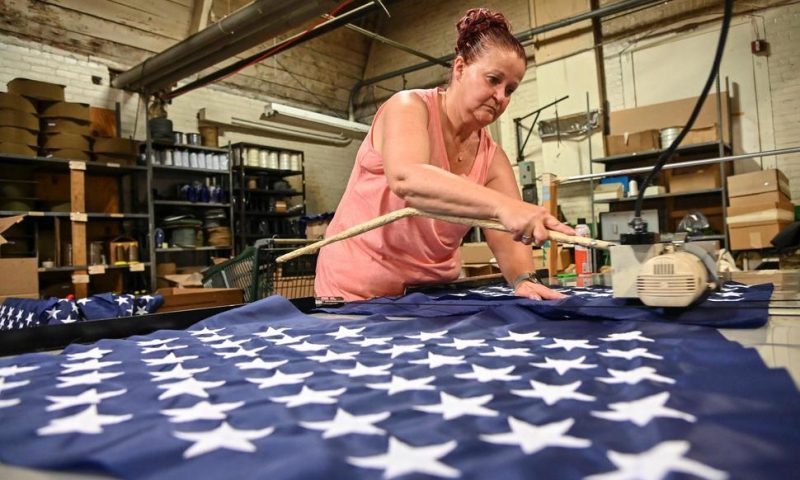Growth in U.S. manufacturing slowed for a second straight month in July amid ongoing supply-chain problems.
WASHINGTON — Growth in U.S. manufacturing slowed for a second straight month in July amid ongoing supply-chain problems.
The Institute for Supply Management, a trade group of purchasing managers, said Monday that its index of manufacturing activity declined by 1.1 percentage points to a reading of 59.5. The index had also slowed in June, dropping to 60.6 from a reading of 61. in May.
Any reading above 50 indicates growth in the manufacturing sector. July was the 14th consecutive month manufacturing has grown after contracting in April 2020 when the coronavirus triggered nationwide business shutdowns.
But the July reading showed slower growth in new orders and production. Manufacturers have struggled in recent months with supply-chain bottlenecks that have made it difficult for them to get computer chips and other necessary components for their products.
“As we enter the third quarter, all segments of the manufacturing economy are impacted by near record-long raw-material lead times, continued shortages of critical basic materials, rising commodity prices and difficulties in transporting products” said Timothy Fiore, chair of the ISM manufacturing survey committee.
But there are some encouraging signs in the July report that suggest the various supply-chain and labor problems are beginning to recede, Fiore said.
For one, the index for employment improved sharply in the July report and is now back in growth territory. Fiore expects current labor shortages to ease and that more people will join the labor force in coming months as expanded unemployment benefits tail off and students go back to school.
Others see the potential for sustained issues in the supply chain.
“Consumer demand will continue to provide a platform for manufacturing’s recovery from the pandemic-induced recession, but scarcity of intermediate goods, components and labor resources will act as a brake on the pace of growth, ”Kurt Frankin, an economist at PNC, said in a research note.
The July report showed that 17 of 18 manufacturing industries reported growth, led by furniture makers. The only industry reporting a decrease in July from the previous month was textile mills.

